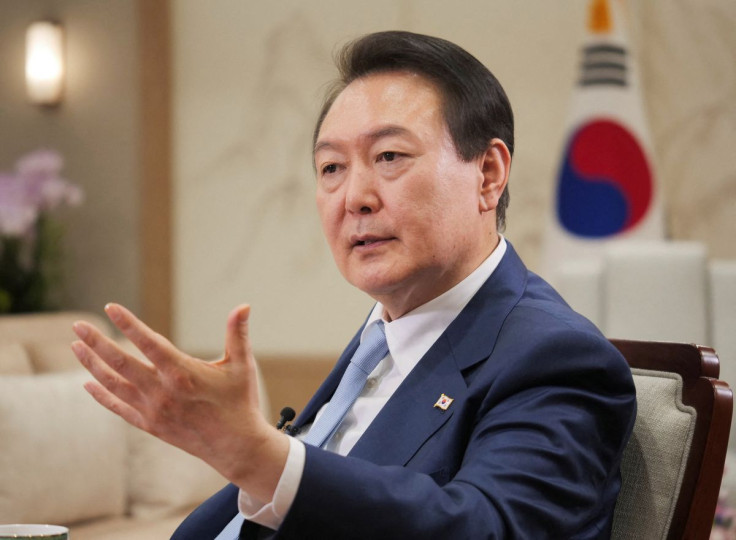
Impeached South Korean President Yoon Suk Yeol resisted investigators' calls on Monday for him to answer questions over his failed bid to declare martial law this month.
Yoon, suspended from office by parliament since Saturday, faces concurrent probes over alleged insurrection by both South Korean prosecutors and a joint team of police, defence ministry and anti-corruption investigators.
South Korea's Constitutional Court began proceedings against Yoon on Monday and has around six months to determine whether to uphold the impeachment.
Yoon and some of his inner circle face possible life imprisonment, or even the death penalty, if found guilty and he remains under a travel ban.
Prosecutors issued Yoon with a second summons on Monday for questioning over insurrection and abuse of power allegations after he "refused to comply" with a similar request a day earlier.
The joint investigation unit also asked that the suspended president appear to answer questions on Wednesday but were rebuffed by his office, Yonhap news agency said.
Investigators could seek a court-issued arrest warrant should he continue to refuse.
Yoon was removed by South Korea's parliament on Saturday over his short-lived attempt to suspend civilian rule, which plunged the country into its worst political turmoil in years.
Fresh elections must be held within two months if his removal is upheld by the Constitutional Court. Prime Minister Han Duck-soo is serving as interim leader in Yoon's stead.
A spokeswoman for the court said on Monday judges had pencilled in a preliminary hearing on December 27, which Yoon is not required to attend.
"During the preparatory hearing, investigation records from the prosecution, police, and other relevant authorities will be promptly secured," spokeswoman Lee Jean told journalists.
"This case will be given top priority," she said.
Vast protests against Yoon, with smaller rallies supporting him, have rocked the South Korean capital since his short-lived December 3 martial law decree.
Demonstrators in both camps have vowed to keep up the pressure as the Constitutional Court considers Yoon's fate.
Police arrested both the current and former heads of the Defence Intelligence Command on Sunday in connection to the insurrection allegations, Yonhap reported.
Prosecutors also arrested the head of the Army Special Warfare Command Kwak Jong-keun, Yonhap said.
Kwak is accused of sending special forces troops to parliament during the martial law bid, sparking a dramatic confrontation between soldiers and parliamentary staff.
The head of Yoon's ruling People Power Party (PPP), who has not been linked to the martial law bid and expressed support for impeachment, also resigned on Monday.
"I sincerely apologise to all the people who have suffered due to the emergency martial law incident," Han Dong-hoon told a news conference in Seoul.
In declaring martial law, Yoon vowed to "eliminate anti-state elements" and suggested South Korea's electoral system was vulnerable to outside interference.
Han Dong-hoon condemned on Monday "extremists such as election fraud conspiracy theorists" and warned "there will be no future for conservatism" if the party entertained those views.
The South Korean government has meanwhile sought to project an air of business as usual.
Acting president Han Duck-soo held a call on Sunday with US President Joe Biden, who underscored the strength of bilateral ties.
Han Duck-soo has also ordered the military to "enhance vigilance" against North Korea, with which the South technically remains at war.
North Korean state media decried Yoon as a "ringleader of rebellion" on Monday, its first reaction to his impeachment.
The state-run Korean Central News Agency (KCNA) said Yoon had attempted to shift responsibility for the "foolish emergency martial law declaration" onto opposition parties.
"The investigation into puppet Yoon Suk Yeol, the ringleader of the rebellion, and his accomplices is under way," KCNA said.
KCNA has described the South as being "in chaos" over the martial law order.
Relations between the two Koreas have been at one of their lowest points in years, with the North launching a flurry of ballistic missiles in violation of UN sanctions.




